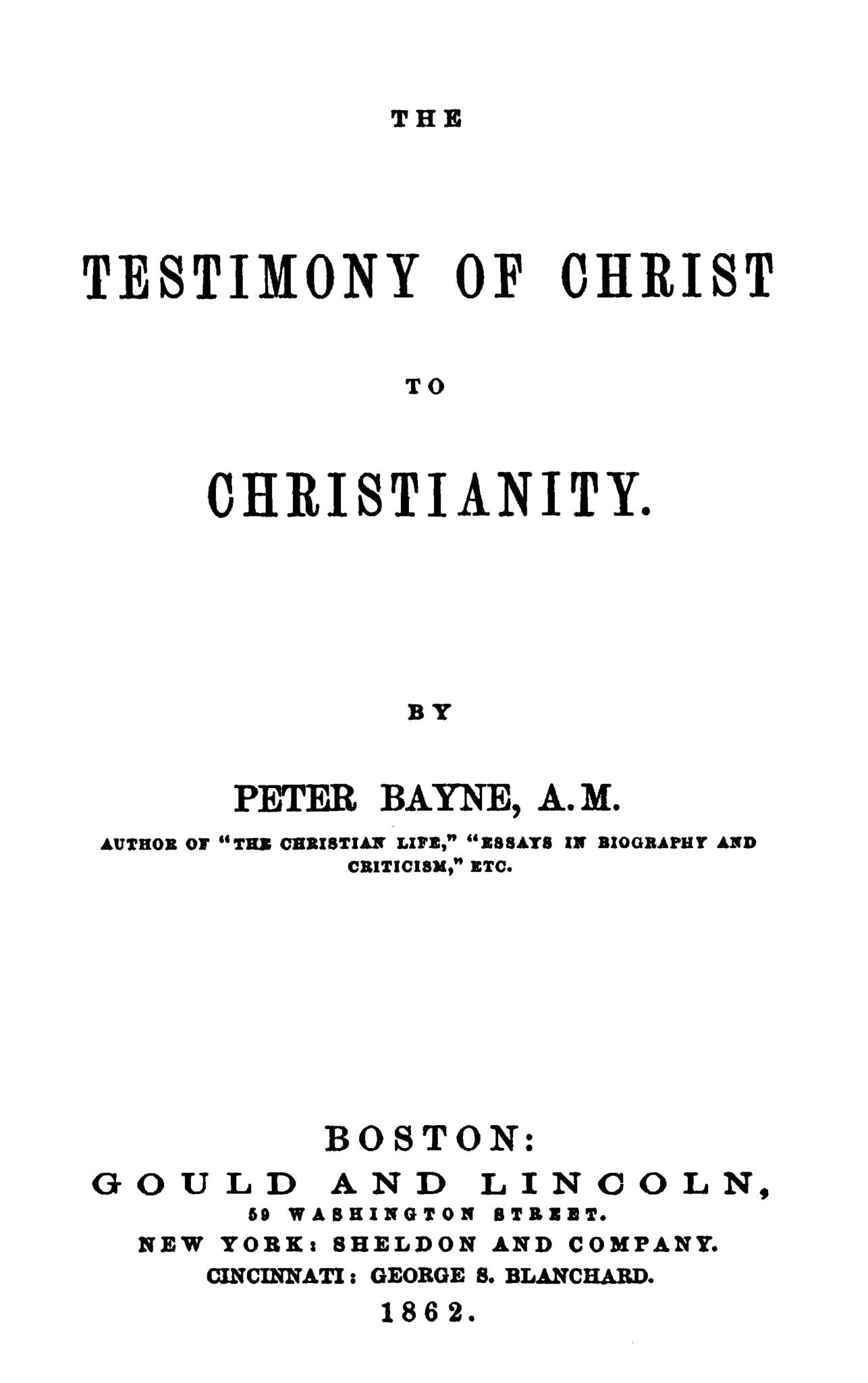If, moreover, we ask what is to be our guard and guarantee in the exercise of our faculties in the sphere of Faith, the reply is, again, the same resource, in great measure, which is our guard and guarantee in the case of Science. Let us test our suppositions by all the rational and critical methods in our power. Let the great inductions of Faith, sustained by the testimony of the great leaders of religious and moral truth, be put to the severest tests of reason which can be applied to them. Do not, indeed, let us be called upon to refrain from indulging those inductions, or to forbear putting them to the proof by staking our lives upon them, until they can be logically established; but by all means let us apply those logical tests to them in as great a degree as possible, and so correct our inductions, and clarify our beliefs, by every means open to us. The contention of reasonable Christian men is not that they are under an obligation to believe certain doctrines, whether rational or not, but that, on the whole, the truths of the Christian religion appear to them the best induction that can be made from the facts open to our observation in the religious and moral world; and that in matters not open to our observation we have the strongest reasons ever afforded to trust that Master and those teachers by whom assurances respecting the unseen and the future have been conveyed to us.
Henry Wace, Christianity and Agnosticism: Reviews of some Recent Attacks on the Christian Faith (London: SPCK, 1904), pp. xxiv-xxv



